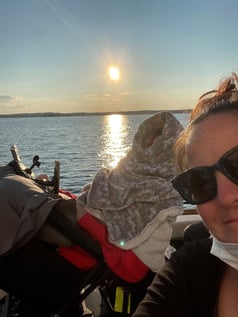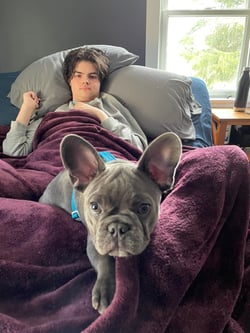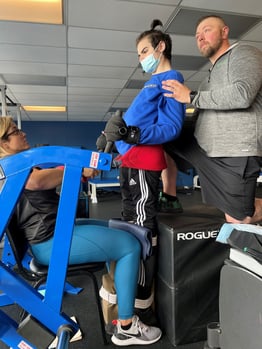Then and Now: Jack Weeks
Join Our Movement
What started as an idea has become a national movement. With your support, we can influence policy and inspire lasting change.
Become an Advocate
It was just enough to nudge him out of his comfort zone. By the end of the summer, he and his grandmother had gone to the movie theater to see Black Widow, and he and Cammie sailed on an accessible local catamaran.
“I was nervous, but it turned out to be beautiful,” Cammie says. “I got to see a beautiful sunset with my boy.”
In August, Jack began participating in Project Walk, a mobility-based training program across the border in New Hampshire. The weekly workouts have boosted his spirit, helping him feel physically stronger than he has since leaving Shepherd.
“It has brought back hope,” Cammie says. “And it has brought back the ‘you-never-know-unless-you-try’ type of feelings.”
Life remains complicated. Jack is navigating a future he is still trying to understand. The challenges of the past year do not yet add up to a happy ending. But Jack can now look back toward the early days of his injury and feel progress.

“I feel different than when I was first injured,” he says. “I feel better physically and mentally. I don’t have a distinct answer why, it just happened.”
For Cammie, who watched Jack survive the first eight days of his injury with a breathing tube before breathing again on his own, it is easier to see and celebrate her son’s hard-earned milestones. The moment he found the courage to go out with his friends. The flash of happiness on his face after a recent workout. Each victory, whether big or small, makes a difference.
“So much of the time, you’re only feeling as good as your kid is,” she says. “Life is like a pendulum. We were down, but we are definitely on the upswing right now, which is great.”

 It was the thick of winter, with the pandemic underway. The Weeks had moved to a new house in a new town that could accommodate Jack’s needs; it was difficult not to feel isolated and on their own as he grappled with a different life.
It was the thick of winter, with the pandemic underway. The Weeks had moved to a new house in a new town that could accommodate Jack’s needs; it was difficult not to feel isolated and on their own as he grappled with a different life.